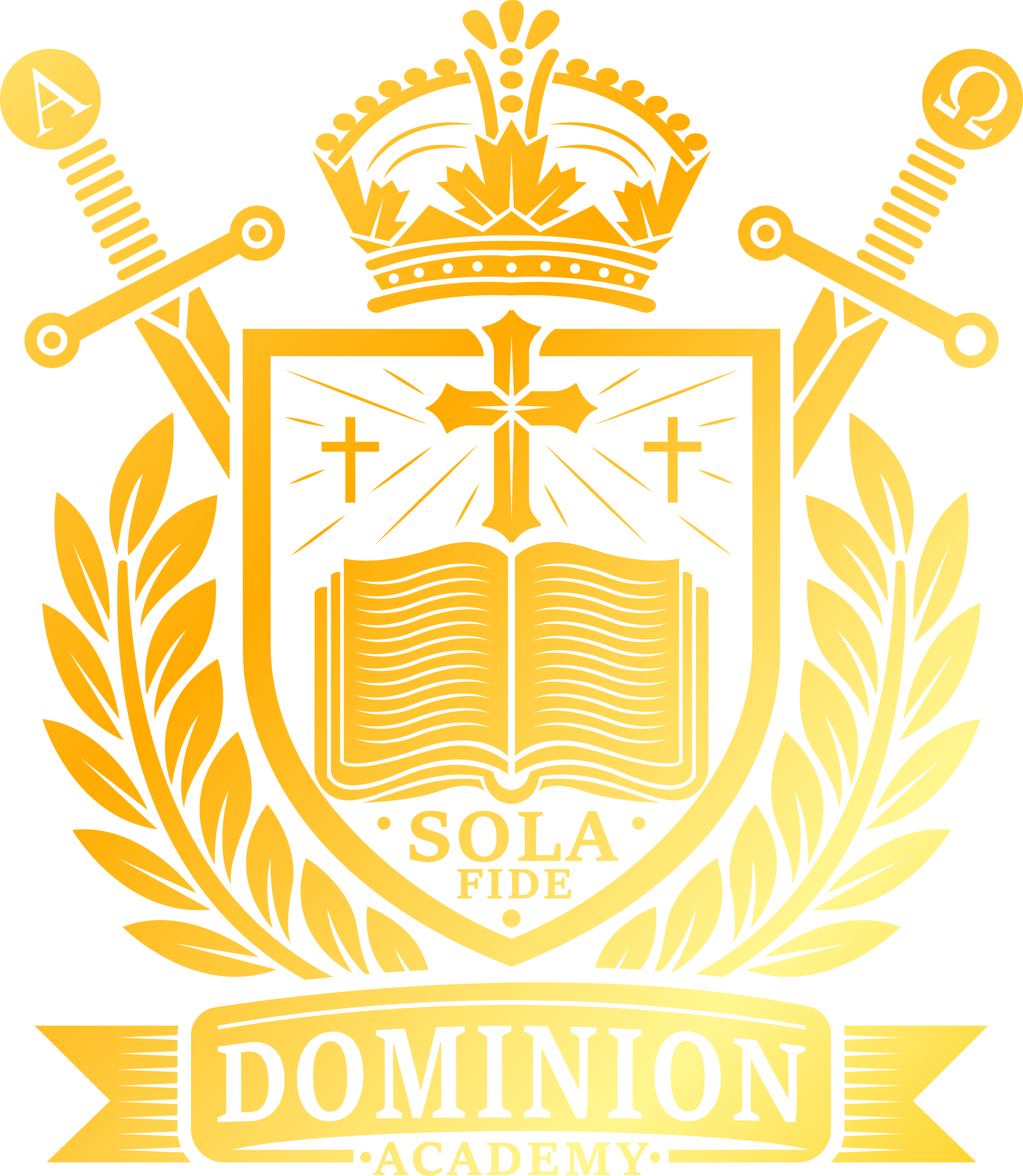The Three Stages of Classical Learning
At Dominion Academy, our approach to education follows the time-honored Classical model, dividing learning into three distinct stages that align with a child’s natural development: Grammar, Logic, and Rhetoric. This method nurtures intellectual growth, equipping students with the skills to think critically, reason effectively, and communicate persuasively.
Grammar Stage (Kindergarten – Grade 5)
In the Grammar stage, young students are naturally eager to learn and absorb knowledge at an incredible rate. Our goal is to nurture this curiosity by immersing them in a structured yet engaging environment that builds a strong academic foundation. This stage emphasizes literacy and numeracy, ensuring students develop fluency in reading, writing, and mathematical reasoning.
History and science are introduced through storytelling, hands-on activities, and exploration, fostering a sense of wonder about the world. Physical education encourages coordination, strength, and discipline, reinforcing the connection between mind and body. Through repetition, memorization, and interactive learning, students gain the essential tools they need to confidently progress to the next stage of their education.
By cultivating a love for learning and establishing core skills early on, we set the stage for lifelong intellectual and moral development.
The Logic Stage: Grades 5–8
As students enter Grades 5 to 8, they begin to question, analyze, and seek deeper understanding of the world around them. This is the Dialectic Stage, where their natural curiosity and desire for logical reasoning become powerful tools for learning.
Building a Foundation for Independent Thinking
Through guided discussions, structured debates, and logical reasoning exercises, students learn to:
✔️ Identify and evaluate arguments
✔️ Ask meaningful questions
✔️ Engage in respectful discourse
✔️ Develop well-reasoned opinions
This stage lays the groundwork for students to think independently and apply wisdom to the knowledge they have acquired, preparing them for the Rhetoric Stage in their academic journey.
Developing Effective Communicators
Our goal is to equip students with the tools to:
✅ Develop well-structured arguments
✅ Express their beliefs clearly and persuasively
✅ Engage in meaningful and respectful debate
✅ Write with depth, precision, and influence
✅ Analyze and critique ideas with wisdom and discernment

The Rhetoric Stage: Grades 9–12
In Grades 9 to 12, students enter the Rhetoric Stage, where they refine their ability to communicate, debate, and express their own philosophies. At this stage, they take the knowledge and logical skills developed in earlier years and learn to articulate their thoughts with clarity, confidence, and conviction.
Skills Gained in the Rhetoric Stage
✔️ Public Speaking – Presenting ideas confidently and eloquently
✔️ Persuasive Writing – Crafting compelling essays and arguments
✔️ Debate & Discourse – Engaging in respectful and logical discussion
✔️ Philosophical Inquiry – Developing a personal worldview rooted in truth and reason
✔️ Critical Analysis – Evaluating different perspectives and defending one’s position
Students are encouraged to not only seek truth but also to communicate it effectively, preparing them for higher education, leadership, and lifelong learning.
Developing Effective Communicators
Our goal is to equip students with the tools to:
✅ Develop well-structured arguments
✅ Express their beliefs clearly and persuasively
✅ Engage in meaningful and respectful debate
✅ Write with depth, precision, and influence
✅ Analyze and critique ideas with wisdom and discernment

